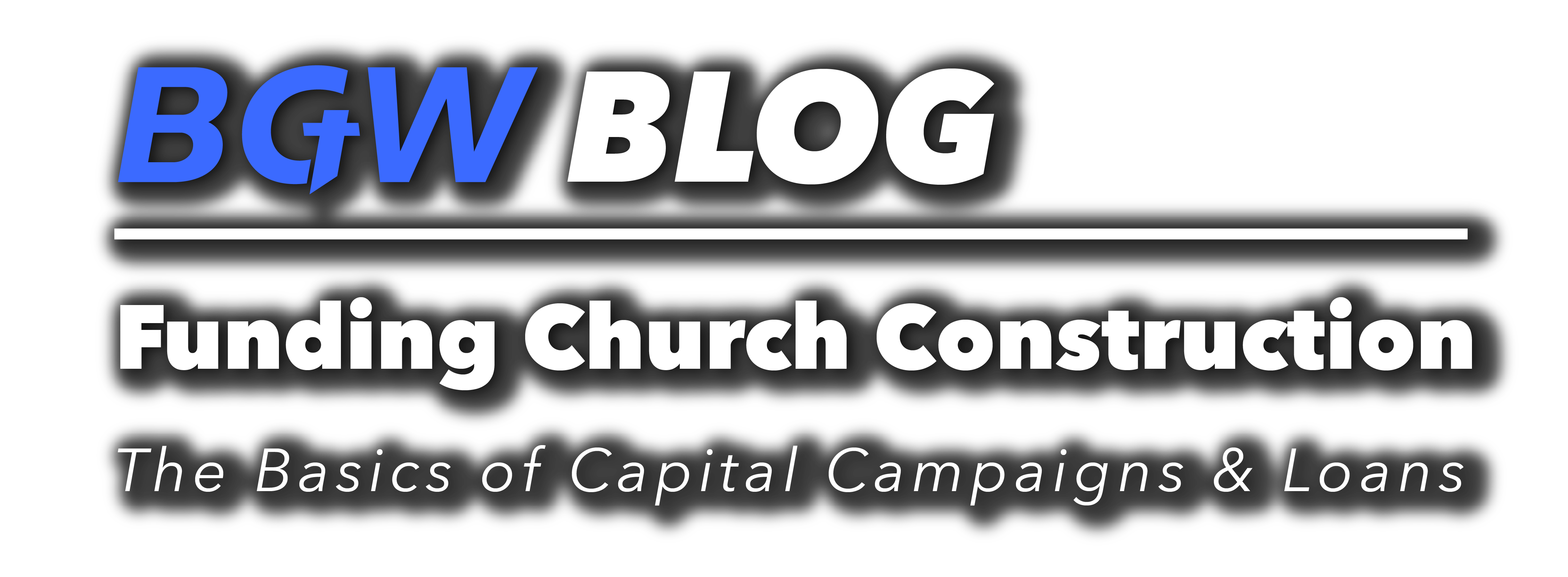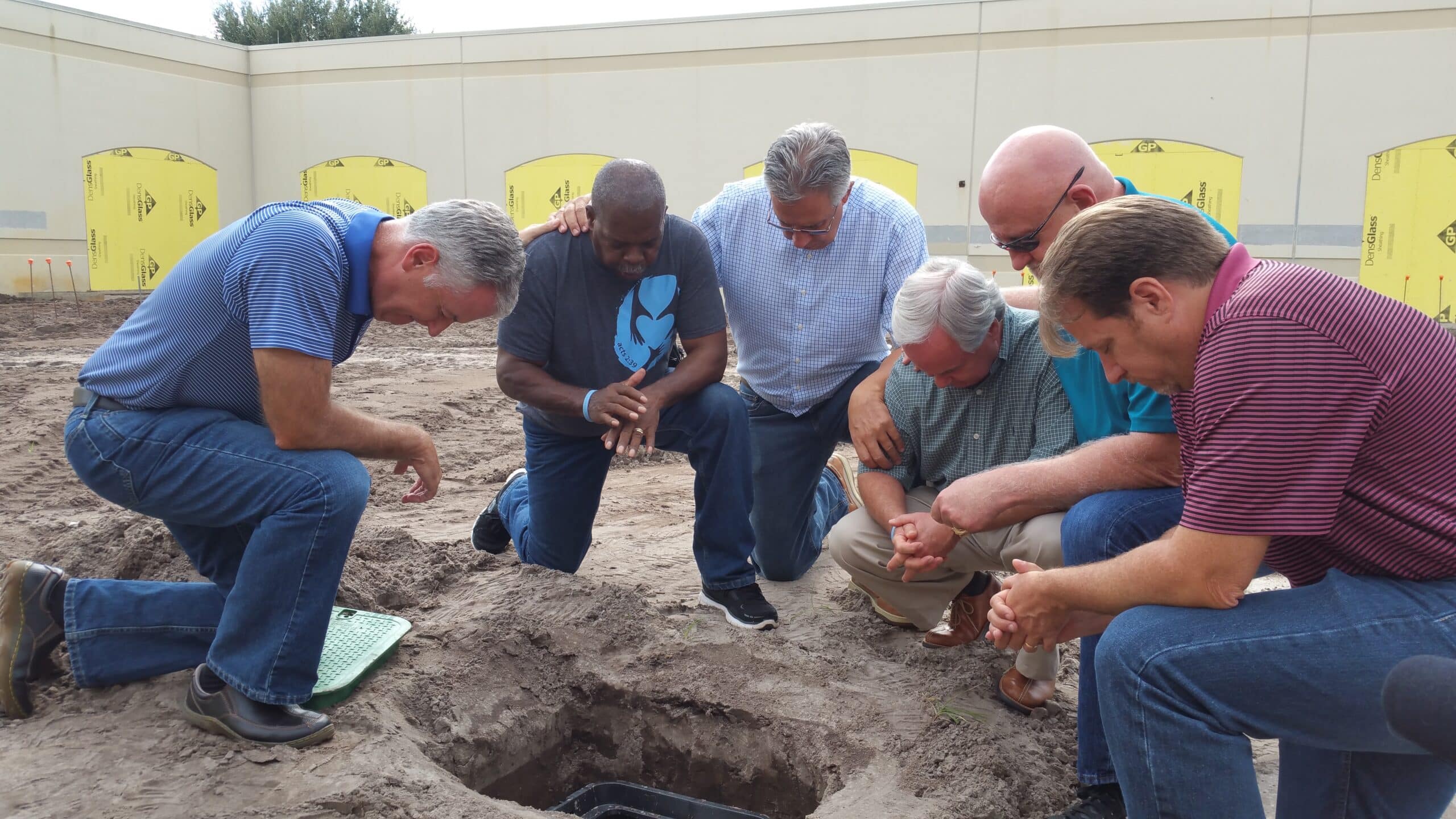

Planning a church building project can be both an exciting and challenging prospect for your ministry leadership. There are many things to consider before embarking on a capital improvement project and the biggest consideration is how to fund the project. Funding church construction can be difficult regardless of your ministry size or scope because there is almost always a gap between your resources and your facility needs or vision.
Although every ministry is unique and funding approaches will vary depending on objectives and mission, the most effective and proven method available for churches to close the funding gap is through a combination of a capital campaign and some type of loan financing.

Determine Your Funding Capacity
Start by soliciting an independent review of your total funding capacity by a qualified church lender. This typically involves a comprehensive analysis of your church financial statements over the last three years, including profit and losses, income statements and balance sheets, as well as your congregation’s giving history and attendance patterns. With this information, the lender will be able to provide you with an estimate of your overall funding capacity for a building project that factors in a reasonable expectation of what you could raise in a capital campaign along with your ability to service new debt.
Through our strategic partners at Cornerstone Funding Consultants, BGW offers a complimentary funding analysis for churches and schools that are considering new construction or remodel. Founder Tom Gordon has been in the financing business for nearly four decades and works nationwide with 50+ lenders, including national banks, regional banks, and prominent Christian lenders. This wide range of lending expertise will ensure the best financing alternatives for your project. is experienced in providing financing solutions to churches nationwide and has structured financing for many types of organizations – from multi-million-dollar mega-campuses to small country churches. They bring a full complement of solutions for funding church construction to consider, including long-term financing, short-term financing, or even tax-exempt options.
Capital Campaigns: DIY vs. Consultant
There is nothing that moves a church’s faith forward more powerfully than going before God, both collectively and on an individual basis, and trusting Him in faith through bold generosity. It is a transformative journey that affects the way a church functions and alters the lives of its members to miraculously tap into God’s resources. A capital fundraising campaign can truly be a catalyst to transforming people spiritually.
One question that frequently comes up for churches interested in funding church construction is whether to launch a Do-It-Yourself (DIY) Capital Campaign or hire a consultant. While some churches can be successful with a self-led effort, capital campaigns are difficult and challenging work and DIY campaigns often come with hidden, surprise costs that most church leaders do not anticipate in their decision making process. Those hidden costs can take away much of the joy and success that a campaign offers your church.
While the mechanics of a campaign might be the same whether you choose the DIY or consultant route for funding church construction, the real work is integrating the campaign into all aspects of your ministry for maximum, sustainable results. That requires objectivity—the kind of perspective only an outside professional can provide.
Our strategic partners at Generis offer some great resources about capital campaigns on their website, including “The Hidden Costs of a DIY Church Capital Campaign”, “Common Mistakes in a Capital Campaign” and “The Ultimate Church Capital Campaign Guide.” Generis has a team of experts that can help you harmonize vision and resources to create a sustainable culture of generosity. They help ministries connect their unique objectives to proven strategies that have helped fund more than six billion dollars in the faith community with a “make-it-last” mindset.

Funding Church Construction with Loans
While capital campaigns can go a long way in helping to fund your building project, most churches will also rely on some type of loan financing to reach their budget requirements. Evaluating all the borrowing options can be overwhelming, so it is important to understand the different types of church lenders in the marketplace and the advantages and disadvantages of each loan product.
It is also important to make sure that the payments you will make on the loan will be manageable, with a margin of error in case the church experiences a dip in giving. A good rule of thumb to keep in mind is the monthly payment should be no more than one third of the church’s tithes and offerings. The church should also maintain cash reserves of at least three months to cover unexpected expenses. The life of the loan should be long enough that the payments are manageable but not so long that the church is paying undue interest on a loan that the church can easily afford to pay off.
Traditional Loans
Traditional bank loans tend to be the “go-to” option for churches and schools due to the familiarity people have with banks. If your church already has an existing relationship with a credit union or bank for your daily financial dealings, start there in looking for a loan. Churches are considered commercial properties by banks. Consequently, a commercial loan is typically what a church needs to satisfy its borrowing needs.
A loan-based relationship requires trust and thorough research on both sides. Interview multiple lenders and ask each of them what loan options they offer. Seek outside counsel on going over the terms. Don’t rely solely on your banker to tell you his opinion. The banker does not work for you; he works for the bank.

Bond Financing
Bond financing is often overlooked as a method of funding church construction. Unlike a traditional loan, for which the bank determines the interest rate, bonds allow the issuer to determine the rate, which can be a significant advantage in a high interest rate environment.
The bonds that are issued are purchased by individual members of the church or outsider investors, and they are the ones that profit from the interest earned from the bond. To counteract any loss for them, bond companies typically charge higher fees upfront. Many churches prefer to have the bond broker sell the bonds to outside investors first, while also making bonds available to members who may be interested.
Another advantage of bond financing is the term. It is extremely rare for banks to issue a 25-year loan commitment. Though it is possible for payments to be amortized over that time period, the terms are convoluted, requiring clients to re-qualify and renew every five to seven years. This can result in additional fees and often higher interest rates after each renewal period.
One of the downsides of funding church construction with bonds is the immediacy of fund availability. Because banks use the capital they already have available to fund loans, they can be ready within two months. Bond financing must take the time needed to sell the bonds into account and therefore usually takes significantly more time.
Church Extension Funds
Church extension funds offer a means for Christians to invest in growing ministries that are looking to expand facilities so they can increase their kingdom impact in their community. Local churches and individuals invest in the church extension funds and the money is used to extend loans to churches and schools. As the borrower repays the loan, that money is used to pay interest to investors at superior return rates and in some cases to create grants to use in further church and school construction.

